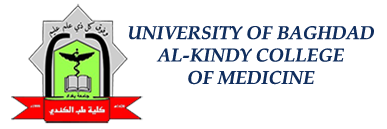The Continuing Education Unit at the Al-Kindy College of Medicine at the University of Baghdad, under the supervision and presence of Prof. Dr. Mohammed Shihab Al-Aydani, held a scientific symposium on “Microplastics”, presented by Dr. Safaa Salman.
The symposium was attended by the Scientific Assistant Prof. Dr. Taghreed Al-Haidari, the Administrative Assistant Prof. Dr. Jamila Ghadban, and members of the faculty chaired by Prof. Dr. Mohammed Asad.
The lecturer defined microplastic particles as very small plastic particles that enter living environments from various sources, causing harm to those environments and the health of the living organisms in them.
He explained that microplastic particles are classified according to their origin into primary microplastics and secondary microplastics. Primary particles are designed for commercial use in products such as cosmetics and microfibers shed from clothing and others. Secondary particles are particles that result from the breakdown of larger plastic materials such as water bottles as a result of exposure to environmental factors such as ocean waves and sunlight.
Dr. Salman addressed the harms of microplastic particles, as they, like other plastics, require hundreds or thousands of years to decompose. During this time, they cause great harm to the environment, as they are swallowed by marine life, starting from plankton and reaching whales.
The lecturer highlighted the alarming presence of microplastic particles in our environment, found in the sand on beaches, seafood meals, and even drinking water. Shockingly, 90% of sea salt types globally contain these particles.
To combat this pervasive issue, it’s crucial to reduce plastic use, properly dispose of plastic waste, and support organizations addressing microplastic pollution. This lecture align with the UN Sustainable Development Goals, specifically Goal 14 (Life Below Water) and Goal 12 (Responsible Consumption and Production), promoting a healthier future for our planet.















